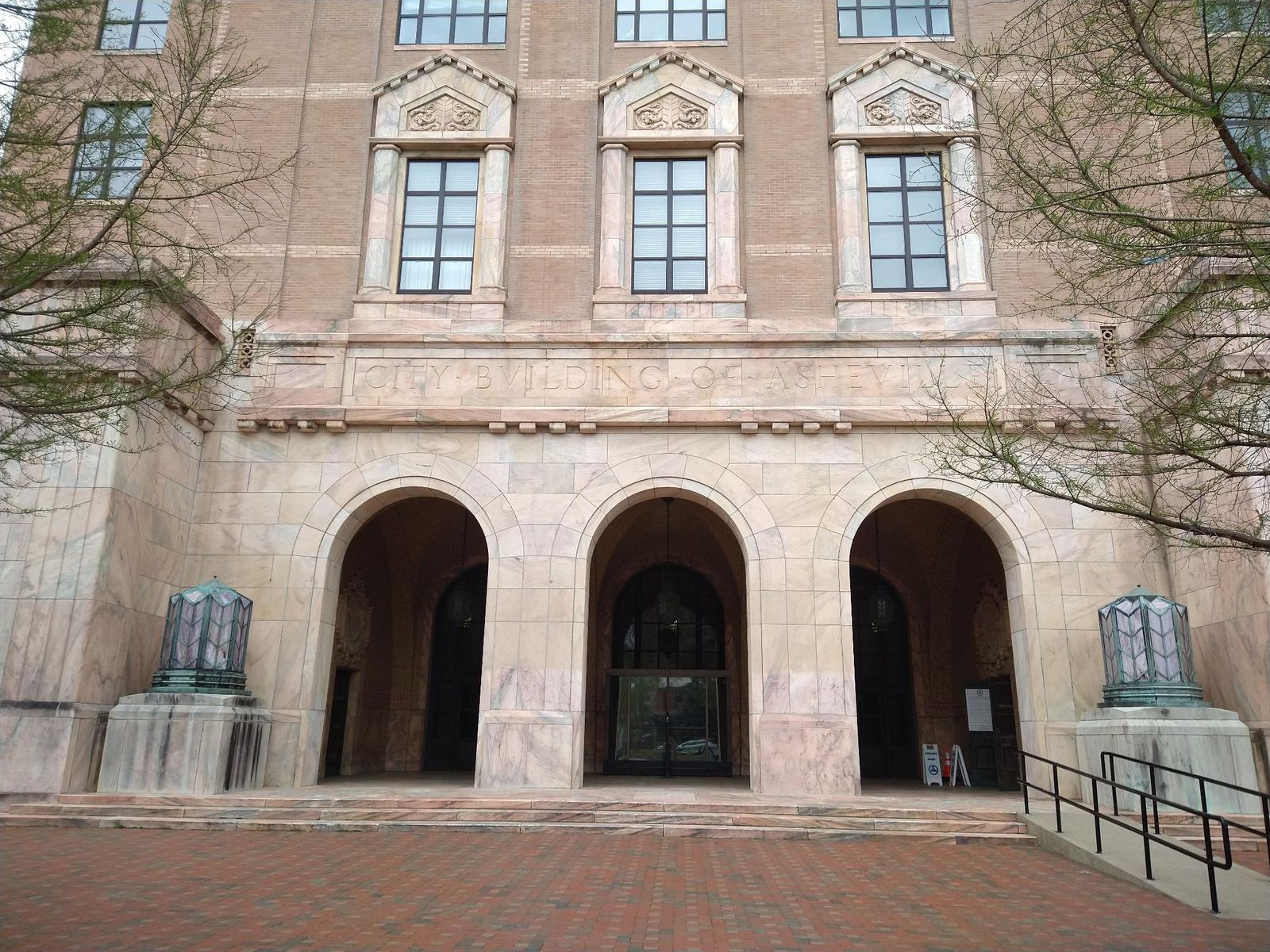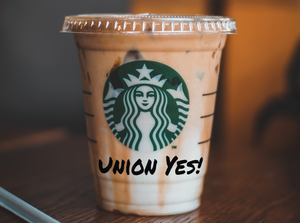Between January and March 2022, Asheville Police Department (APD) charged fifteen* individuals with “felony littering” or "aiding and abetting felony littering" in connection with a protest at Aston Park in late December 2021. The demonstration was against the City’s policy of evicting homeless encampments.
*Editor's Note: The number of defendants has grown to sixteen since this report was published
In March, twelve of the Aston Park Defendants were also issued a “Restricted Access Notice” by APD, banning them from all Parks and Recreation facilities for three years. According to administrative policy, APD can issue these letters at the time of citation for “any offense punishable as a felony.”
The defendants appealed and were granted hearings adjudicated by two APD officers, City legal staff, and the Parks Department director. As this is an administrative process—not a criminal procedure—the defendants are not entitled to see the evidence against them.
Martin Moore*, an attorney representing five defendants, says this process raises concerns about his clients’ access to a fair trial.
“[The hearing] forces [my clients] to defend a case before the criminal process that would afford due process protections, discovery, having the DA look at it, [and] an independent investigation,” Moore said. “If the officers are directing the process, there’s no fair trial.”
What are ‘Restricted Access Notices,’ and Where Did They Come From?
In an email on March 29, Kim Miller, Communication Specialist with the City of Asheville, stated that APD wrote and mailed the letters. She also shared a copy of the Administrative Policy on Restricted Access to City Parks.
Issued in 2013 and updated in 2017, this policy allows “any employee of the City’s Parks and Recreation Department (Parks Department) or the Asheville Police Department (APD)” to issue a restricted access notice “upon an observed violation of any park rule.” APD may also provide this notice “at the time of arrest or citation for any misdemeanor or felony offense committed in a City park.”
The policy prescribes a three-year ban from Parks and Recreation facilities upon “the commission of any offense punishable as a felony under federal or state law.” As this punishment is based on the “observed” commission of an offense, not the conviction of a crime, it does not require that the defendants be found guilty of the felonies they have been charged with.
After receiving the Restricted Access Notice letters, the Aston Park Defendants and their attorneys attempted to understand who issued them and the appeals process. During a visit to the Parks Department on March 14, the defendants were directed to APD, then to the criminal magistrate, then to the civil magistrate, and then back to the Parks Department. The defendants said each department seemed unfamiliar with the Restricted Access Notice letters or relevant policy, indicating how infrequently that policy is applied. Eventually, Lenora Jones, Administrative Assistant for the Parks Department, told them to send an email to request a hearing.
On Friday, March 25, APD and the Parks Department met to discuss the Restricted Access Notice appeals process and schedule dates for the hearings. Shortly after the meeting, the defendants received emails notifying them of the dates for their appeals.
The hearings are adjudicated by the Parks and Recreation director, a legal representative from the City of Asheville, and two police officers: Captain Mike Lamb — who was observed in the Zoom call with the Parks Department on March 25, assisting in determining whether the defendants’ appeals qualified for a hearing — and officer Sam DeGrave, who joined APD in 2019 after covering the crime beat for the Asheville Citizen-Times.
Extreme Application of the Law
According to Moore, this extrajudicial process does not afford the usual protections of a civil or criminal case, places the burden on the accused to prove their innocence, does not allow them to see the evidence against them, and allows APD to punish them for a crime which has not yet been indicted or convicted.
“We do not know what evidence [the Parks Department] has been given to prove that a felony occurred […] they’re just banned because APD asserted they saw a crime?” Moore said.
Elon Law Professor Enrique Armijo echoed this concern in a call with the Free Press. Armijo speculated that the application of the Restricted Access Notice, while the District Attorney is not negotiating or indicting the felony charges, allows the government to “Get to the same place (punishment for an alleged crime) without the protections of reasonable doubt. [...] You’re banned based on—basically—testimony from one police officer.”
Armijo also questioned whether the application of Felony Littering charges against the Aston park Defendants reflects the “legislative intent” of the statutes.
“It seems to me that [this statute is intended] for people who, instead of [taking all of their household trash and] going to the dump, they take it to a different location and leave it there.” In his example, the legislative intent of a felony littering statute is to prosecute illegal dumpsites, such as an area where someone has been throwing household trash into a ravine.
Joel Schechet, attorney for four defendants, also expressed shock that felony charges are being aggressively pursued against a group of “young people” who are first-time offenders. “In any other case, we would have been offered diversion or a misdemeanor [plea] by now.”
As the defendants note in their April 14 statement, the City is expending a significant amount of resources on pursuing these charges.
“They’re pursuing a felony against first-time offenders while the DA candidates are fighting over a response to houselessness,” said Schechet — the very issue the Aston Park protest intended to highlight.
First Amendment Concerns
Armijo, an expert on the First Amendment, said that there are potential First Amendment challenges to be made on behalf of the Aston Park Defendants if the law is being applied unevenly.
“Assigning the total amount [of property left behind in the park] to each of these people, when that is not how they applied this statute in the past, can be evidence of animus against [the defendants] for First Amendment purposes,” he said.
It is currently unclear how APD intends to distribute responsibility for the total amount between the fifteen defendants. To be prosecuted as a felony, a person or organization must dump more than 500 pounds. In a Twitter post on January 14, 2021, announcing the arrests, APD stated, “Back on Dec. 19 and 27, activists dumped between 1,000 and 2,200 pounds of litter and refuse in Aston Park.”
Both the ordinance and the statute are unevenly applied, according to Armijo, if they are not regularly used in similar situations. As far as the Free Press could determine, APD did not bring felony littering charges in recent cases of homeless encampment evictions, even those which resulted in the disposal of substantial amounts of personal belongings from the camps. We have requested, but not yet obtained, the list of people issued Restricted Access Notices, which APD and the Parks Department maintain.
How the 'Political Atmosphere' Could Bolster a First Amendment Challenge
According to Armijo, the current political atmosphere around homelessness and protests presents another consideration regarding the potentially unequal application of the felony littering statute and the Restricted Access Notice ordinance.
The response to homelessness is a prescient issue in Asheville. Mayor Esther Manheimer declared it a "crisis," and as the city ramps up to the 2022 municipal elections, candidates have been asked about their position on the issue by multiple publications. Manheimer has also stated there is "no appetite" on City Council for the material demand put forward by the Aston Park demonstrations in December: A sanctioned campsite for unhoused urban campers, or "sanctuary camp."
On January 11, 2022, three days before the APD’s Twitter post, Captain Mike Lamb gave a presentation to Asheville City Council in which he explicitly attributed a retroactive change in APD policy on encounters with individuals experiencing homeless to "activists, anarchists."
On January 20, during Asheville City Council's private check-in meetings, they discussed an anti-food sharing ordinance, another policy change Lamb alluded to during his presentation.
On January 29, council member Sage Turner wrote a lengthy post on Facebook that connects the proposed anti-food sharing ordinance to the Aston Park demonstrations.
“Let’s keep talking about food and large gatherings in parks," Turner writes. "I want you to eat and enjoy our parks [sic]. All of you. Unfortunately, there is an alarming increase in debris, waste, refuse, etc. left behind [...] We quickly learned there is a gap in hot food services on some days each week. I credit Vice Mayor Smith with this new information and the volunteers that figured this out long ago and were helping by providing food on those gap days. What citizens didn’t hear is that we’d just hauled off some 2200 pounds of trash from that same park a few weeks before. Three truckloads worth, if I recall.”
Vice Mayor Smith had visited Aston Park on January 22 and spoke with members of the Asheville Survival Program’s Streetside collective, who distribute free food and supplies to unhoused people at public parks. Turner’s Facebook post seems to connect the Streetside Collective, the Aston Park sanctuary camping demonstrations, and the food sharing ordinance into a single narrative.
Turner did not respond to an email request for comment on the subject.
The fact that these felony charges are rare and government officials have repeatedly drawn connections between their responses and protest activity could evidence bias against these activists. Even if the statutes seem "content-neutral" on their face, Armijo said that there could be a First Amendment challenge on the basis of their application.
Drawing a connection between the Aston Park Defendants case and a trend he’s observed around the country in the wake of the 2020 uprisings, Armijo pointed out that many states and municipalities are using content-neutral ordinances and laws to punish particular speakers.
The U.S. Protest Law Tracker, a project of the International Center for Non-Profit Law, displays that 45 states have considered anti-protest laws, and 38 states have enacted them.
Armijo said, “In the wake of those protests, states pass these laws that make no reference to BLM or police brutality, on the face, they appear to be content-neutral,” but there was “particular animus at the time the laws were passed.”
Referring to recently enacted anti-riot statutes in Florida, Armijo said, “ACLU is challenging on behalf of BLM and other organizations, saying ‘Look at what happened at the time you passed the statute. All [government officials] were talking about were protests that were taking place; that is evidence that the statutes are directed at that speech.’”
“[The police] don’t go to City Council and say ‘we need an ordinance that stops people from protesting,’ but what they do is apply ordinances that were sitting on the books for other things. They find ordinances that are already on the book,” Armijo said.
What’s Next for the Aston Park Defendants?
The defendant’s Parks Department appeals hearings began on Thursday, April 21. the Free Press was denied entry to these hearings by City legal staff. The felony littering charges have not yet been indicted to superior court, and preliminary hearings are ongoing.
A simplified version of the timeline for the defendants’ felony charges, based on information provided by Moore and the NC Judicial Branch:
- A defendant is charged (arrest, warrants served, turning themselves in). Bond or conditional release are set.
- First Appearance – Review of bond and defendant’s rights, decision to represent self, hire an attorney, or have a public defender appointed.
During this period, a defendant’s attorney and the State’s District Attorney commonly negotiate for a plea agreement. In the case of a felony case, the DA can agree to a lower-level plea agreement, in which the defendant would plea guilty to a misdemeanor offense. The DA can also offer diversion, a form of sentencing in which the defendant’s charges are dismissed upon completion of a rehabilitation program. This is common with first-time drug offenses. Conditional Discharge is another option which can be imposed by a judge, in which a defendant is found guilty or pleads guilty but charges are dismissed after a year of compliance with a court’s terms. This is commonly applied to first-time drug offenses and common requirements include drug treatment, screenings, and not being charged with additional crimes. The DA in the Sanctuary Camp Defendants case has currently not offered diversion or a plea agreement. - Probable Cause Hearing – Felony cases only. Possible grand jury indictment. A grand jury consists of 12-18 members of the public who convene to hear the State’s evidence in the case and determine whether probable cause exists for the charges. If at least 12 members agree that probable cause exists, the case is indicted to Superior Court. Plea negotiations can continue at this point.
- Felony Trial. Superior court cases are heard by a jury of 12 citizens who return the verdict of guilty or not guilty. If convicted, the defendant will be sentenced by a judge.
*Editor's Note: Moore is a candidate for the Buncombe County Commission. The Asheville Free Press does not endorse any candidates for public office. Moore's inclusion as a source in our stories is strictly in his capacity as a defense attorney and should not be construed as an endorsement for his campaign.





